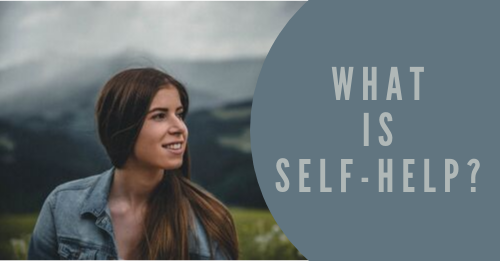Have you ever heard the phrase, “no one can help you until you help yourself?” There’s some truth to this sentiment. Self-help is based on the idea that only we can bring about the changes we want to see in ourselves. It prizes self-discovery and self-assistance. Self-help elevates goal setting and encourages people to find a version of their best self.
You have probably seen self-help books that focus on these ideas. Many self-help movements revolve around a certain facet of self-improvement, such as losing weight or improving self-esteem. Self-help can also be useful in Recovery. There are many advantages to becoming your own best advocate.
The Benefits of Self-Help
Self-help can lead to lasting change that often eludes us when we wish for things rather than embracing the steps that help us achieve them. Self-help means recognizing your own self-interests and acting in ways that will affirm your worth and improve your life.
Self-help resources can benefit you in many ways during Recovery, including:
- Increase your self-awareness
- Give you the tools to develop healthy coping mechanisms
- Find an outlet for feelings that contribute to dependence on drugs and alcohol
- Channel your introspection in a healthy way
- Encourage you to consider responses you may not have thought about before
- Emphasize that changes take place gradually, not overnight
If you struggle with wanting a quick fix, self-help books can show you why this won’t happen and how to effectively embrace slow changes that will last.
Best Self-Help Books
Self-help books can assist you in Recovery by showing you that you can create lasting change. It won’t be easy, but it is possible. Here are four books that embrace fantastic messages everyone in Recovery can benefit from:
- “Girl, Wash Your Face”: We all lie to ourselves occasionally, but sometimes those lies can become excuses for why we’re not enjoying and embracing life. Author Rachel Hollis advises readers to stop with the excuses and start living for real.
- “Gmorning, Gnight!”: Do you need a pep talk now and then to remind yourself of how great you are and how much you are worth? Then Lin-Manuel Miranda’s book, which came from his inspiring morning and nighttime Twitter sign-ons and sign-offs, is the perfect little book of encouragement.
- “Presence”: Amy Cuddy argues that you can tap into small changes, like better posture and body language, to improve the image you present to people and gain more confidence.
- “Deep Work”: Many in Recovery want to reconnect to the things that are important to them and relearn the ability to focus. Cal Newport offers tips to doing this in his book.
How 7 Summit Pathways Can Assist You
While self-help is effective, you shouldn’t try to treat addiction on your own. At 7 Summit Pathways Treatment and Recovery Center, we offer evidence-based treatments and individualized support throughout the Recovery journey.
If you want to get treatment for your addiction, contact 7 Summit Pathways to get more information or schedule an appointment today.
